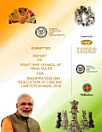Autonomy, Rationality, and Contemporary Bioethics
apl 2020 · Oxford University Press
E-book
352
Pages
family_home
Éligible
info
reportLes notes et avis ne sont pas vérifiés. En savoir plus
À propos de cet e-book
This is an open access title available under the terms of a CC BY-NC-ND 4.0 International licence. It is free to read at Oxford Scholarship Online and offered as a free PDF download from OUP and selected open access locations. Personal autonomy is often lauded as a key value in contemporary Western bioethics. Though the claim that there is an important relationship between autonomy and rationality is often treated as uncontroversial in this sphere, there is also considerable disagreement about how we should cash out the relationship. In particular, it is unclear whether a rationalist view of autonomy can be compatible with legal judgments that enshrine a patient's right to refuse medical treatment, regardless of whether the reasons underpinning the choice are known and rational, or indeed whether they even exist. Jonathan Pugh brings recent philosophical work on the nature of rationality to bear on the question of how we should understand personal autonomy in contemporary bioethics. In doing so, he develops a new framework for thinking about the concept of autonomy, one that is grounded in an understanding of the different roles that rational beliefs and rational desires have to play in it. Pugh's account allows for a deeper understanding of d the relationship between our freedom to act and our capacity to decide autonomously. His rationalist perspective is contrasted with other prominent accounts of autonomy in bioethics, and the revisionary implications it has for practical questions in biomedicine are also outlined.
À propos de l'auteur
Jonathan Pugh is a Postdoctoral Research Fellow in Applied Moral Philosophy at the University of Oxford and Manager of the Visiting Programme for the Oxford Uehiro Centre for Practical Ethics. His research interests lie primarily in issues concerning personal autonomy in practical ethics, particularly topics pertaining to informed consent. He has also written on the ethics of human embryonic stem cell research, criminal justice, human enhancement, gene-editing, and neuroethics.
Donner une note à cet e-book
Dites-nous ce que vous en pensez.
Informations sur la lecture
Smartphones et tablettes
Installez l'application Google Play Livres pour Android et iPad ou iPhone. Elle se synchronise automatiquement avec votre compte et vous permet de lire des livres en ligne ou hors connexion, où que vous soyez.
Ordinateurs portables et de bureau
Vous pouvez écouter les livres audio achetés sur Google Play à l'aide du navigateur Web de votre ordinateur.
Liseuses et autres appareils
Pour lire sur des appareils e-Ink, comme les liseuses Kobo, vous devez télécharger un fichier et le transférer sur l'appareil en question. Suivez les instructions détaillées du Centre d'aide pour transférer les fichiers sur les liseuses compatibles.







